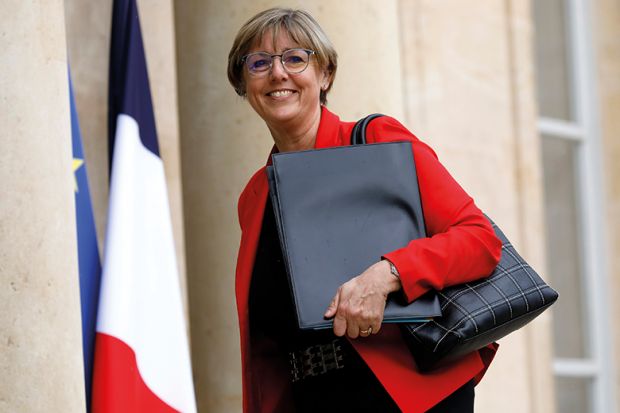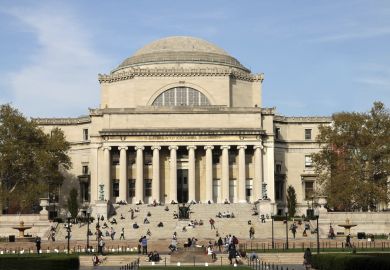France’s new research and universities minister must show that her attention and her abilities extend far beyond the type of large, research-intensive institution she recently led, according to sector leaders.
As former president of the top-ranked Université Paris-Saclay, Sylvie Retailleau will be expected to understand the challenges facing those vying for a piece of the global research landscape.
But the physicist will be watched even more closely by those whose ambitions lie elsewhere.
“Universities like us are going to be very careful and vigilant about the kinds of policies that are going to be prompted by our new minister,” Lionel Larré, president of Bordeaux Montaigne University, told Times Higher Education.
“Research is everywhere, in all our universities, including the smaller ones and including when they are very much anchored in the territory,” said Professor Larré, whose institution specialises in the humanities.
“If the policies are only directed to help the big international universities and are neglecting the others, then of course it is going to be an issue.”
Professor Larré, who worked directly with Professor Retailleau in the research policy working group of France Universities, the national rectors’ conference, said he was confident that she understood this.
Emmanuel Macron appointed Professor Retailleau last month as part of the caretaker government led by prime minister Élisabeth Borne.
While much policymaking will be frozen until the outcome of parliamentary elections later this month, polls project that Mr Macron’s party, recently rebranded Renaissance, will retain its majority.
His governments have continued a long-running focus on research excellence, epitomised by the €10.3 billion (£8.7 billion) Initiatives d’Excellence (Idex) programme to create comprehensive research-intensive universities, and iSITE, which funds regional universities with excellence in specific fields.
Christine Musselin, a professor at the Sciences Po Centre for the Sociology of Organisations, said Professor Retailleau’s focus would need to be broader.
“Let’s see if she will be able to convince Borne that a very consequential budgetary effort should now be led for universities that are not Idex and iSITEs but that should not be left on the side if we want a globally excellent higher education system able to achieve all the missions expected from it,” she said.
Here again there may be cause for some optimism, as Professor Musselin said Professor Retailleau “often stresses the need for excellence but also for inclusiveness”.
In a speech, Professor Retailleau said improving the living conditions of students, the attractiveness of academia and the distinction of roles between universities and France’s national research organisations were her top priorities.
Boris Gralak, secretary general of the SNCS-FSU trade union, which represents staff at the national research organisations that vie with universities for funding and influence, said he expected relations with Professor Retailleau to be better than those with her predecessor, Frédérique Vidal, another academic-turned-minister, whose tenure he described as “catastrophic”.
“It was very terrible,” he said, referring to Professor Vidal’s crusade against “Islamo-leftism” in French academia.
Unsurprisingly, Dr Gralak was wary of universities taking more responsibility for research, arguing that coordination was easier for nationwide bodies such as the National Institute of Health and Medical Research (Inserm) and the National Centre for Scientific Research (CNRS). “It is necessary to organise research on a national level and not only on a local level,” he said.
Professor Retailleau’s experience leading a group of freshly merged Parisian institutions will no doubt come in handy for the national struggles ahead. “Her positive energy is one of her strengths,” said Professor Musselin.
“A page is turned; she is a person the universities know very well,” said Professor Larré. “If she stays in touch with us and our needs, everything is possible.”
Register to continue
Why register?
- Registration is free and only takes a moment
- Once registered, you can read 3 articles a month
- Sign up for our newsletter
Subscribe
Or subscribe for unlimited access to:
- Unlimited access to news, views, insights & reviews
- Digital editions
- Digital access to THE’s university and college rankings analysis
Already registered or a current subscriber? Login








